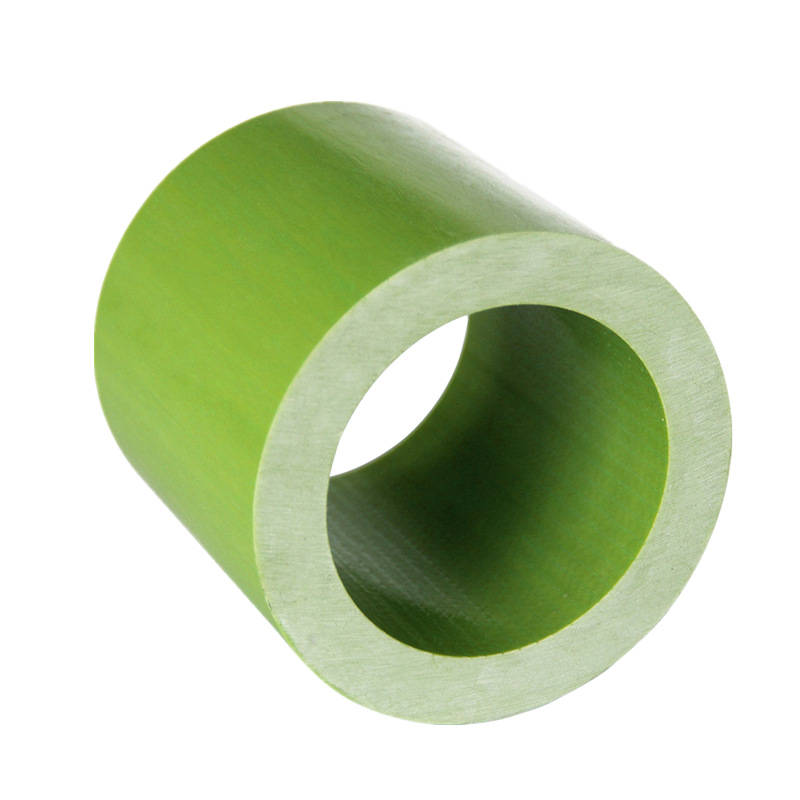In the realm of underground engineering, the role of rock bolts is pivotal for ensuring the stability and safety of rock formations. Among the various types of rock bolts, GFRP (Glass Fiber Reinforced Plastic) rock bolts have emerged as a significant advancement. These bolts, known for their lightweight, high strength, and corrosion resistance, offer a promising alternative to traditional steel bolts, especially in harsh underground environments. The adoption of GFRP rock bolts is revolutionizing the way engineers approach rock support systems, providing solutions that enhance the durability and safety of underground structures.
Understanding GFRP Rock Bolts
GFRP rock bolts, or Glass Fiber Reinforced Plastic rock bolts, represent a significant advancement in underground engineering. These bolts are composed of a polymer matrix reinforced with glass fibers, offering a unique combination of strength, lightweight, and resistance to environmental degradation. Unlike traditional steel bolts, GFRP rock bolts do not corrode, making them particularly suitable for use in harsh underground conditions where moisture and chemical exposure are common.
The manufacturing process of GFRP rock bolts involves the careful selection and treatment of fiber materials, followed by the application of a resin system that binds the fibers into a solid, cohesive structure. This process is crucial in ensuring the mechanical properties of the bolts, such as tensile strength, flexural strength, and impact resistance. The resin system used in GFRP rock bolts is engineered to withstand the rigors of underground environments, providing long-lasting performance and reliability.
One of the key advantages of GFRP rock bolts is their lightweight nature, which significantly reduces the overall load on rock formations compared to steel bolts. This characteristic is particularly beneficial in applications where minimizing additional weight is critical. Additionally, GFRP rock bolts offer superior corrosion resistance, extending their lifespan and reducing the need for frequent replacements. These properties make GFRP rock bolts a preferred choice for modern underground engineering projects, where efficiency, safety, and durability are paramount.
Applications of GFRP Rock Bolts in Underground Engineering
GFRP rock bolts have found a wide range of applications in underground engineering, demonstrating their versatility and effectiveness in various settings. One of the most significant uses is in the support of rock formations in tunnels and mines. Their lightweight and corrosion-resistant properties make them ideal for stabilizing loose or fractured rock, ensuring the safety and stability of these critical structures. The use of GFRP rock bolts in these scenarios not only enhances the structural integrity of the tunnels and mines but also extends their operational lifespan.
Another important application of GFRP rock bolts is in the reinforcement of slopes and embankments. In civil engineering projects, such as road construction or slope stabilization, GFRP rock bolts provide a reliable solution for preventing landslides and ensuring the stability of the terrain. Their ability to withstand harsh environmental conditions without degrading over time makes them a preferred choice for long-term slope stability solutions.
In addition to these traditional applications, GFRP rock bolts are increasingly being used in the construction of underground caverns and hydroelectric power stations. The unique properties of GFRP, including its non-corrosive nature, make it suitable for use in environments where traditional steel bolts would be prone to rapid deterioration. This application is particularly important in projects where structural integrity and safety are of utmost concern, such as in the construction of large-scale underground structures.
The versatility and reliability of GFRP rock bolts in these various applications underscore their growing importance in the field of underground engineering. As projects continue to evolve and the demands for durable and efficient rock support systems increase, GFRP rock bolts are poised to play an even more significant role in ensuring the safety and stability of underground structures.
Advantages of Using GFRP Rock Bolts
The adoption of GFRP rock bolts in underground engineering projects offers several distinct advantages over traditional steel bolts. One of the most notable benefits is their lightweight nature. GFRP rock bolts are significantly lighter than their steel counterparts, which simplifies handling and installation. This characteristic is particularly advantageous in deep or confined spaces where the weight of materials can be a limiting factor. The ease of installation not only speeds up the construction process but also reduces labor costs, making GFRP rock bolts a cost-effective solution for many projects.
In addition to their lightweight properties, GFRP rock bolts exhibit exceptional corrosion resistance. In environments where moisture, chemicals, or saline conditions are prevalent, steel bolts can corrode rapidly, leading to structural failures and costly maintenance. GFRP rock bolts, on the other hand, maintain their integrity and performance over time, even in harsh conditions. This long-term durability reduces the need for frequent replacements and repairs, thereby lowering the overall maintenance costs and enhancing the reliability of the rock support system.
Furthermore, GFRP rock bolts offer superior tensile strength and flexibility. These properties allow them to absorb and dissipate energy from rock movements, providing effective support and reducing the risk of rock falls. The flexibility of GFRP rock bolts also enables them to adapt to the movement of the surrounding rock, ensuring continuous support and stability. These mechanical properties make GFRP rock bolts an ideal choice for supporting fractured or unstable rock formations, ensuring the safety and stability of underground structures.
Conclusion
GFRP rock bolts are transforming the landscape of underground engineering, offering a blend of strength, durability, and resistance to harsh environments that traditional steel bolts cannot match. Their lightweight nature and exceptional corrosion resistance make them indispensable in various applications, from tunnel and mine support to slope stabilization and the construction of underground caverns. The mechanical properties of GFRP rock bolts, including superior tensile strength and flexibility, ensure effective support and stability in even the most challenging conditions.
The advantages of using GFRP rock bolts extend beyond their immediate mechanical benefits. By reducing the need for frequent replacements and maintenance, these bolts contribute to lower operational costs and enhanced safety in underground structures. As the demand for durable and efficient rock support systems continues to grow, GFRP rock bolts are poised to play an increasingly important role in the future of underground engineering.




























